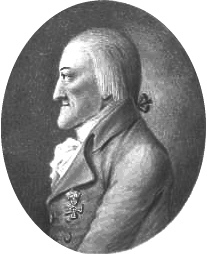|
Suvorov's Swiss Campaign
Suvorov's Swiss campaign took place on Swiss territory between September and October 1799 during the War of the Second Coalition. Russo-Austrian troops, who had already repeatedly defeated the French in Italy (geographical region), Italy between April and August, Battle of Gotthard Pass, crossed St. Gotthard under the command of Field marshal (Russian Empire), Field Marshal Alexander Suvorov, Alexander Vasilyevich Suvorov-Rymniksky, with orders to march against General André Masséna to drive him out of the Helvetic Republic. After the important victories of the previous months during the Italian and Swiss expedition, campaign in Italy, Suvorov had remained in control of the situation in the northern part of the Peninsula and a final defeat of the French seemed imminent with the Russian general determined to march even to France, but the divisions and rivalries of the coalesced powers would soon favor the resurgence of the revolutionary armies: fearing that Russia's influence wou ... [...More Info...] [...Related Items...] OR: [Wikipedia] [Google] [Baidu] |
Helvetic Republic
The Helvetic Republic (; ; ) was a sister republic of France that existed between 1798 and 1803, during the French Revolutionary Wars. It was created following the French invasion and the consequent dissolution of the Old Swiss Confederacy, marking the end of the ''ancien régime'' in Switzerland. Throughout its existence, the republic incorporated most of the territory of modern Switzerland, excluding the cantons of Geneva and Neuchâtel and the old Prince-Bishopric of Basel. The Swiss Confederacy, which until then had consisted of self-governing cantons united by a loose military alliance (and ruling over subject territories such as Vaud), was invaded by the French Revolutionary Army and turned into an ally known as the "Helvetic Republic". The interference with localism and traditional liberties was deeply resented, although some modernizing reforms took place. Resistance was strongest in the more traditional Catholic cantons, with armed uprisings breaking out in spring ... [...More Info...] [...Related Items...] OR: [Wikipedia] [Google] [Baidu] |
Paul I Of Russia
Paul I (; – ) was Emperor of Russia from 1796 until his assassination in 1801. Paul remained overshadowed by his mother, Catherine the Great, for most of his life. He adopted the Pauline Laws, laws of succession to the Russian throne—rules that lasted until the end of the Romanov dynasty and of the Russian Empire. He also imposed the first limitations on serfdom in Russia, serfdom with the Manifesto of three-day corvee, sought to curtail the privileges of the Russian nobility, nobility, pursued various military reforms which were highly unpopular among officers and was known for his unpredictable behavior, all of which contributed to the conspiracy that would take his life. In 1799 he brought Russia into the War of the Second Coalition, Second Coalition against First French Republic, Revolutionary France alongside Kingdom of Great Britain, Britain and Habsburg monarchy, Austria; the Russian forces achieved several victories at first but withdrew after facing setbacks. Paul ... [...More Info...] [...Related Items...] OR: [Wikipedia] [Google] [Baidu] |
Battle Of Muottental
The Battle of (the) Muottental, also known as the battle of the Muttental, Muotatal or Muotta, was fought in 1799, on 30 September and 1 October, during the Second Coalition war as part of Suvorov's Swiss campaign. The Russian troops of Rosenberg's rearguard, ordered by Suvorov, stood in the Muottental (also referred to as the Muttental), now Muotatal, covering the march of the main force, and were attacked by outnumbered French troops under the overall command of Masséna. French troops were more than double that of the Russian forces. It ended in a decisive Russian victory. Prelude to the battle Suvorov's disposition of troops instructed Rosenberg's corps to remain in the rearguard and hold the enemy from Schwyz until all the packs had passed over Mount Bragell (now Pragel). Rosenberg was ordered to hold firm, to repel the French with all his strength, but not to pursue them beyond Schwyz. While half of the Russian troops were thus making their way out of the Muott ... [...More Info...] [...Related Items...] OR: [Wikipedia] [Google] [Baidu] |


